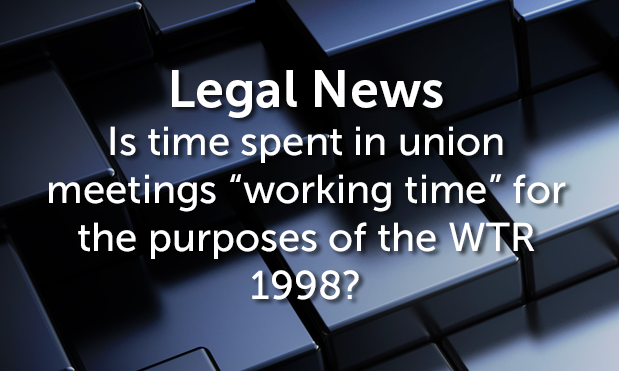
Yes, in some circumstances, ruled the Employment Appeal Tribunal (EAT) recently in Edwards and another v Encirc Ltd.
Under the Working Time Regulations 1998 (WTR), “working time” is defined as any period where the worker is “working, carrying out his duties and at the employer’s disposal”.
Attention Recruiters
See Live Jobs on SplitFee.org – Don’t Miss Out
It’s FREE if you Join Now!
In the above case, two employees – one a union shop steward and the other a health and safety representative – raised a grievance with their employer regarding daily rest breaks under the WTR. They argued that, due to them having to attend trade union meetings in between shifts, this prevented them from obtaining 11 consecutive, uninterrupted hours’ rest in a 24 hour period (as is their right to daily rest under the WTR).
Their employer argued that the time spent at the union meetings was not “working time” for the purposes of the WTR. The employees raised a formal complaint to the Employment Tribunal (ET).
The matter proceeded to the Employment Appeal Tribunal who looked closely at the definition of “working time” and particularly whether the employees were “at the employer’s disposal”. It held that: –
- Employers often decide where and when the trade union meetings take place;
- Had the meetings taken place during work hours, then it was accepted that the employers could call the employees out of the meeting to carry out their duties;
- Where meetings were out of work hours, the employer could have directed the employees to leave the meetings in order to take their adequate daily rest break; and
- The employees were not at “rest” when they were at the meeting – they were carrying out duties as trade union/health and safety representatives which were of benefit to the employer.
As such, it held that time spent by trade union/health and safety representatives at union meetings, can, in some circumstances, amount to “working time”.
Comment
It is important to note that this decision applies specifically to trade union and/or health and safety representatives – it is unlikely to apply to individual union members attending these meetings.
Recruiters who act as employers should take care where they have shop stewards etc. attending union meetings and ensure that this does not impact on their right to a daily rest break (i.e. 11 uninterrupted hours in a 24 hour period) or breach the 48 hour weekly working limit if the employee has not opted out, amongst other WTR considerations.
To avoid any claims, recruiters who act as employers would be wise to clarify the definition of “working time” with the unions and ensure that meetings (and working time generally) are properly monitored.







